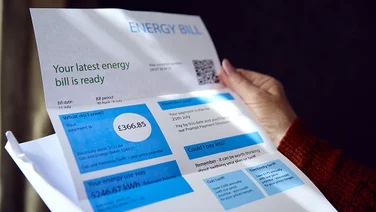The UK is currently experiencing an unprecedented energy crisis, thanks to a global surge in wholesale power and gas prices.
Since January 2021, wholesale prices for gas have increased by 250% – 70% of this during August and September alone, according to Oil & Gas UK.
This means households across the country – and many other European countries – are facing record-breaking energy bills, which are set to get worse over the winter months. As a result, some households are having to sacrifice part of their lifestyle.
Our National Home Energy Survey found that 63% of respondents are planning to cut back on nights out to save money, with 48% also reducing the number of holidays they go on.
These high prices are also putting pressure on energy suppliers, who are unable to pass on the increases to their customers due to Ofgem’s price cap.
But how will the energy crisis affect you? Do you need to be concerned about how reliable your supplier is? Why are gas prices increasing? We cover everything you need to know in this article.
What’s on this page?
Which energy suppliers have gone bust?
According to Citizen’s Advice and Ofgem, dozens of energy suppliers have folded in 2021, including:
- Green Network Energy – Taken over by EDF in February 2021
- Simplicity Energy – Taken over by British Gas in February 2021
- HUB Energy – Taken over by E.ON Next in August 2021
- PFP Energy – Taken over by British Gas in September 2021
- MoneyPlus Energy – Taken over by British Gas in September 2021
- Utility Point – Taken over by EDF in September 2021
- People’s Energy – Taken over by British Gas in September 2021
- Arvo Energy – Taken over by Octopus Energy in September 2021
- Green – Taken over by Shell in September 2021
- Enstroga – Taken over by E.ON in October 2021
- Igloo Energy – Taken over by E.ON in October 2021
- Symbio Energy – Taken over by E.ON in October 2021
- Colorado Energy – Taken over by Shell in October 2021
- Pure Planet – Taken over by Shell in October 2021
- Daligas Limited – Taken over by Shell in October 2021
- GOTO Energy Limited – Taken over by Shell in October 2021
- Zebra Power – Taken over by British Gas in November 2021
- Omni Energy – Taken over by Utilita in November 2021
- AmpowerUK – Taken over by Yü Energy in November 2021
- MA Energy – Taken over by SmartestEnergy Business Limited in November 2021
- Bluegreen Energy – Taken over by British Gas in November 2021
- Neon Reef –Taken over by British Gas in November 2021
- Social Energy –Taken over by British Gas in November 2021
- Bulb – Ofgem is in the process of allocating a new supplier for customers
- Orbit Energy – Taken over by Scottish Power in December 2021
- Entice Energy – Taken over by Scottish Power in December 2021
- Zog Energy – Taken over by EDF in December 2021
- Bristol Energy – Ofgem is in the process of allocating a new supplier for customers
Data from Ofgem, July 2022
Which energy suppliers are at risk?
Energy suppliers are dropping like flies, and are estimated to continue doing so for the rest of the year. In fact, analysis from Baringa Partners suggests the UK could be left with only 10 energy suppliers by the end of 2021 – down from 70 suppliers at the beginning of the year.
Which suppliers will survive the energy hike?
There’s a lot of uncertainty around which suppliers are safe and which are still in uncharted territory. However, some firms have confidently stated that they won’t be going bust from the energy price hike.
We’ve listed a few companies that seem to be surviving the crisis below.
Octopus Energy
One of the first energy suppliers to confirm they are safe, Octopus Energy’s CEO, Greg Jackson, tweeted to say as a “global, very well-backed company we’re fine”.
A spokesperson told The Eco Experts that Octopus Energy met the Business Secretary over the weekend and joined his talks with the industry to discuss developments in the energy market.
Octopus Energy is also reassuring customers not to panic.
“Customers should not worry. The government’s energy price cap is doing its job and protecting them against price spikes. As one of the largest, best backed, best-run companies in the sector, we will do all we can to support consumers, government and Ofgem as they work through this.” – A spokesperson from Octopus Energy
Green Energy UK
Not to be confused with Green, which we spoke about earlier, Green Energy UK (GEUK) is confident that it will be able to continue providing energy for its customers. The company recently tweeted to say it is not involved in any bailout talks, and that it is “here to stay”.
British Gas
Unlike a lot of other firms, British Gas has arguably benefitted from the energy crisis, gaining roughly 441,000 extra customers from bust companies in September alone. Although people are free to switch suppliers after being appointed to British Gas, it’s likely customers will want to play it safe with one of the traditional ‘Big Six’ during such a turbulent time.
EDF
Similar to British Gas, Ofgem has appointed EDF to take on Utility Point’s customers – an extra 220,000 paying people. Another one of the old Big Six companies benefitting from the crisis.
What if your supplier goes bust?
If your supplier goes bust, don’t panic – you won’t suddenly be out of gas and electricity. If a firm folds, Ofgem appoints a new company to supply energy to its customers.
If you find yourself in this situation, you’ll be switched to something called a ‘supplier of last resort’, and any credit with the old provider will be transferred to the new company. If a supplier of last resort is not possible, a ‘special administrator’ will be appointed by Ofgem and the government, to ensure you still have energy in your household.
If your supplier goes bust, Ofgem advises:
- Not to switch to another provider until a new one has been appointed to you, and you have been contacted by the new supplier
- You should take a meter reading, ready for when your new supplier gets in touch. This will make the process of transferring over to the new provider – and paying back any outstanding credit balances – as smooth as possible
- Once your old tariff ends, the new supplier will put you on a special ‘deemed’ contract, which will last for as long as you want it to
Why are energy prices so high?
Prime Minister Boris Johnson has stated that this surge in natural gas prices is simply a “temporary problem,” caused by the global economy recovering from the COVID-19 pandemic.
“It’s like everybody going back to put the kettle on at the end of a TV programme, you’re seeing huge stresses on the world supply systems. But you’re also seeing businesses bouncing back strongly.” – Boris Johnson
There is, of course, much more to it than this.
Energy companies pay something called a ‘wholesale price’ to buy gas and electricity, which they then sell to consumers.
As in any market, the wholesale price can go up or down – typically, prices rise in response to more demand during the winter months.
However, Dermot Nolan, a former chief executive of Ofgem, said these recent increases are the result of depleted stocks following a cold winter last year, reduced gas supply from Russia, and increased demand for liquefied natural gas from the far east.
According to Sue Ferns, Prospect Senior Deputy General Secretary, this is something that has been gradually happening for over a year but has now reached a breaking point:
“Despite government protestations, it is clear that the UK energy market faces a crisis that could get even worse during the winter months. Prospect warned over a year ago of the precarious position of energy retail companies, but sadly nothing has been done to forestall the current problems”.
If you want to learn more about the energy crisis, and why the UK has been hit particularly hard, check out our article on The Five Key Reasons Behind the UK’s Gas Price Increases.
How long could the energy crisis last?
These record-high energy prices are not expected to reduce any time soon. In fact, a lot of energy analysts are estimating that this is likely to persist throughout the winter.
Former chief executive of Ofgem, Dermot Nolan, told the BBC Radio 4 Today programme:
“It is not obvious to me what can be done in the very short run. Britain does have secure, relatively diverse sources of gas, so I think the lights will stay on. But I am afraid it is likely, in my view, that high gas and high electricity prices will be sustained for the next three to four months.”
Summary
Things are looking bleak for winter 2021/22 – but try not to panic. If your energy supplier goes bust, Ofgem is here to protect you and all the other customers who might be in the same boat.
If you’re worried about how much your gas and electric bills will cost you this winter, check out some of our helpful articles below on how to save energy around the house:






